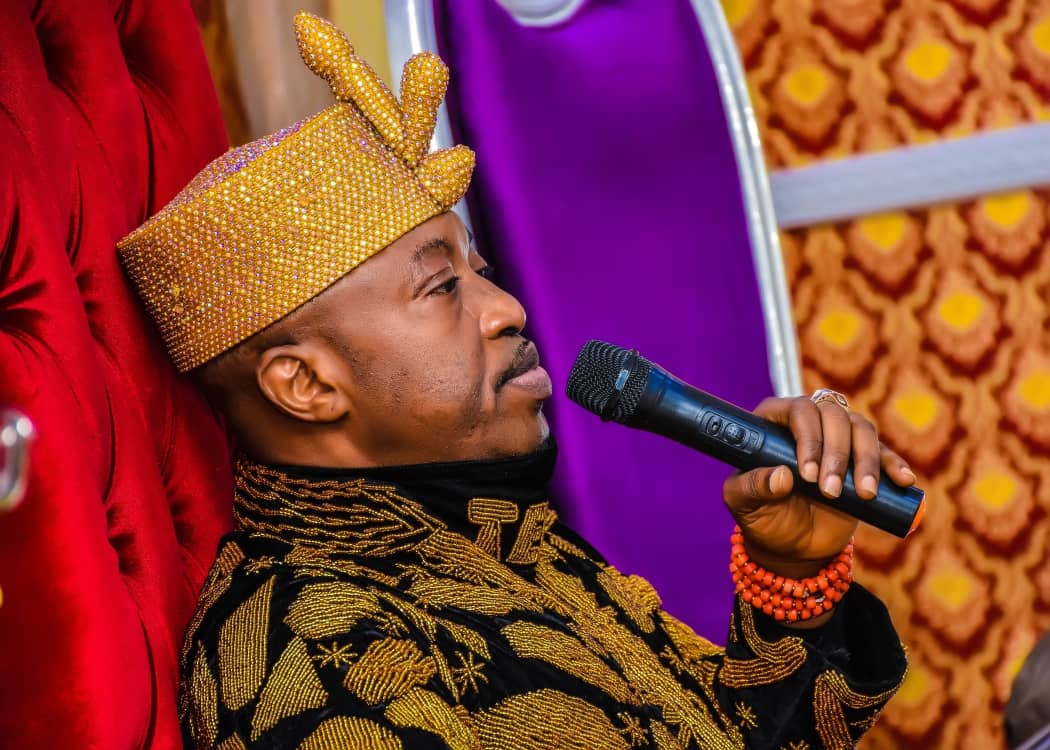The Oluwo of Iwoland, Oba Abdulrosheed Adewale Akanbi, has criticised BBC Yoruba for publishing what it described as a distorted historical account of Luwo Gbagida.
Yoruba historical accounts state that Luwo Gbagida was the only female Alaafin of Ife.
The statement, issued by Alli Ibraheem, the spokesperson to Oba Akanbi on Sunday, called for factual accuracy to prevent misinformation from shaping the historical understanding of the Yoruba people.
In the response, the Iwo monarch clarified that her correct name is Luwo Gbagida, not Luwo Gbagidi.
He also refuted claims that she bore the title of Ooni, stating instead that she was known as Alaafin, a title translated to Olofin in the Ile-Ife dialect.
The statement explained: “Oduduwa, after conquering Ife, adopted the title of Alaafin, while the title of Ooni was first used by the second ruler of Ife, Obamakin Osangangan, who hailed from a priestly lineage.”
The palace also attributed the widespread use of the title Ooni for all Ife rulers to Samuel Johnson, a historian of Oyo origin.
According to the statement: “Johnson deliberately avoided the term ‘Alaafin’ for Ife kings to prevent any perceived rivalry with the ruler of his ancestral homeland.”
Correcting the historical record further, Oba Akanbi asserted that Luwo Gbagida was the 16th Alaafin of Ife, not the 21st, as claimed by BBC Yoruba.
He dismissed reports that Adekola Telu was the first Oluwo, stating that the title originally belonged to Olumade Paarin.
The statement recounted: “Luwo Gbagida instructed that the crown could only be worn at a site where parrots were hatching. Adekola Telu, whose name was later shortened from ‘Teludo’ (meaning ‘found a city’), passed away at Igbo-Orita before the prescribed site was discovered, which later became the present-day city of Iwo.”
It further clarified: “Luwo Gbagida, acting alone, directed her son, Adekola Telu, to establish a new settlement at their original ancestral home.”
The statement rejected any suggestion that the decision involved consultations with other rulers or chiefs, asserting that the move was solely at Luwo Gbagida’s discretion.
Tracing her lineage, Oluwo described “Luwo Gbagida as a direct descendant of Alaafin Oduduwa, part of a royal line of conquerors that included notable figures such as Alaafin Oranmiyan, Lajamisan, Ladojogun, Owodo, and Otaataa.”
He stated that these rulers, referred to as Olofin in the Ife dialect, maintained a legacy of expansion and governance.
He called on BBC Yoruba to conduct further research by visiting the Owodo Royal House in Ile-Ife and urged the media organisation to consult Sooko Owodo or the royal house’s secretary to verify historical details.
He also cautioned against what he termed “confabulation of history” and the misrepresentation of the people’s heritage.
While condemning the language used by BBC Yoruba in its report, particularly referring to Luwo Gbagida as “Oruko Buruku” (a bad name), he challenged the media outlet to justify this description, insisting that Luwo Gbagida was a historic heroine whose legacy remains unmatched.
Oba Akanbi demanded that BBC Yoruba issue a public correction and apology for the distortion of Iwo’s history and the misrepresentation of its revered ancestral figure and warned against any attempt to undermine her historical significance.


